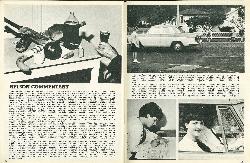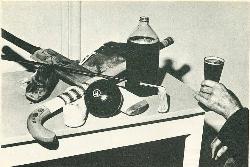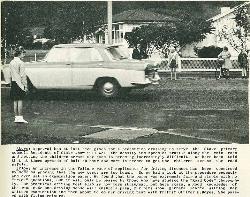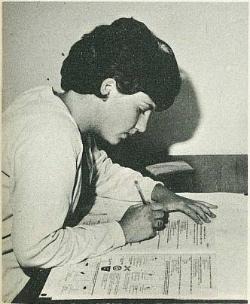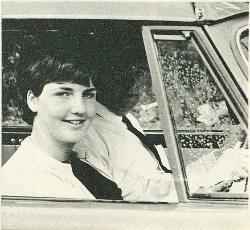54
Nelson Commentary
Newspapers throughout New Zealand have in recent weeks carried stories of golf clubs being raided by the police and their subsequent prosecutions for breaches of the liquor laws. About the same time it was announced that the councils of the New Zealand Golf Association and the Bowling Association would make combined representations to the government to have the sale and consumption of liquor on club premises legalised. In Nelson, an article in the "Evening Mail" discussing the liquor question as it applies to sporting bodies - which, it suggested, could be breaking the law by allowing liquor at after-match functions - aroused considerable interest and not a little confusion. The article quoted the chief inspector of police in Nelson (Mr C. L. Scanlan) as stating that the situation was a complex one and that there was no ready rule-of-thumb answer to the question of when club drinking was legal. It also quoted a Nelson solicitor as saying that the law relating to liquor was so confused that it was invariably difficult to make categoric statements. "We find it impossible to tell clients exactly what their rights and duties are," he said.
What we, and thousands of others would like to know is, if there is no ready rule-of-thumb answer to the question of when club drinking is legal and if it is impossible for solicitors, who make their living from laws, to advise clients one way or another on this question, how can the man in the street be expected to interpret the law?
The law, as it relates to the sale of liquor, is reasonably clear. What has the sportsmen confused is section 264 of The Sale of Liquor Act, 1962. This section deals with the illegal use of premises for the consumption of liquor. The very first sub-section of this section states that "no building, room, or other premises shall be kept or used as a place of resort for the consumption of liquor on those premises". The section does not limit a man's right to consume or serve liquor to guests in his own home. The effect of this sub-section is the complete prohibition of an after-match drink in clubrooms - even if the liquor has been bought at an hotel or brought from home. The solicitor mentioned in the article, however, felt that liquor could be consumed on these premises, provided this happened only "occasionally". How often, many have asked, is "occasionally"?
We have no intention here of stating that sports clubs should have the rights they seek. But neither do we see the harm in allowing sportsmen who are permitted to enter a hotel bar, having a few drinks in their own club rooms, provided the facilities and entrance to them is controlled. We do, however, feel that there are anomalies and contradictions in the law and that the government should correct anomalies. It is universally known throughout New Zealand that past and present administrations have been reluctant (to say the least) to make any sweeping changes in the liquor laws. Both the Prime Minister (Mr Holyoake) and Minister of Justice (Mr Hanan) have been quoted as saying that our liquor laws are not as good as they could be. It is to be hoped, therefore, that the Government will take steps to correct such anomalies and confusion, as soon as possible.
55
Approval has at last been given for a pedestrian crossing to serve the Stoke primary school. Residents of Stoke know full well the density and speed of traffic along the main road and getting the children across the road is becoming increasingly difficult. We have been told that at times upwards of half an hour and more is needed to get the children across the road safely.
An increase in the failure rate of applicants for driving licences has been construed by some as proving that the new tests are too tough. So we had a look at the procedure recently and even sat an examination paper. We found that the paper was extremely fair and simple with no "trick" questions. But it will only be passed by those who have studied the "Road Code" thoroughly. The practical driving test also is now more stringent, but here again, a good knowledge of the road code and driving sense will ensure a pass. Our pics show Barbara Pearce sitting her written examination and then about to do her driving test with Traffic Officer D. Boyes. She passed with flying colours.


